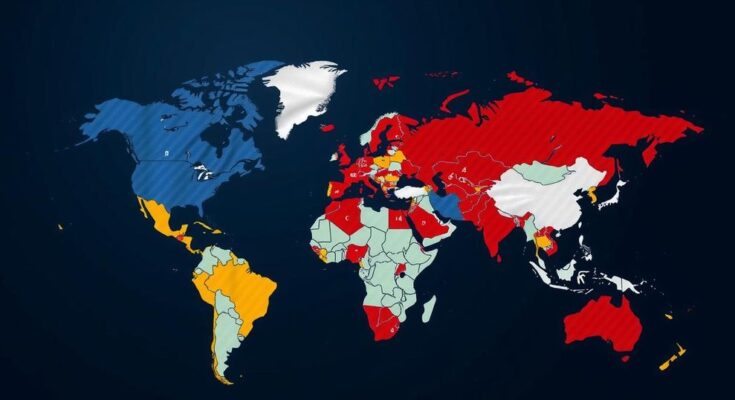Incumbent parties globally have faced significant election losses, with over 80% of democracies affected. The Democratic Party’s recent challenges are contextualized by a broader global trend of voter discontent and economic anxiety. Although relatively mild compared to international counterparts, the losses underscore a pivotal moment in U.S. politics as Democrats transition to the role of challengers in upcoming elections.
Incumbent parties around the globe have faced significant losses during recent elections, indicating a broader political trend affecting established governments. In the aftermath of Election Day, intense scrutiny has been directed at Vice President Kamala Harris’s campaign, with analysts dissecting the issues that contributed to the Democratic Party’s challenges. The situation reflects a global sentiment where citizens have grown increasingly dissatisfied with their leadership, with over 80 percent of democracies witnessing incumbents losing seats or vote share. Notable examples include Japan and South Africa, where long-standing ruling parties experienced historic defeats. Despite the narrower scope of losses experienced by the Democrats in the U.S. compared to many international counterparts, factors such as economic performance played a crucial role. While many nations grapple with rising inflation and sluggish growth, the U.S. economy has shown robust GDP growth and real wage increases, albeit with persistent issues such as inflation impacting voter perceptions. Concerns related to domestic economic stability dominated the electoral landscape, overshadowing positive indicators. In contrast to countries where incumbents maintained power by emphasizing security concerns, U.S. campaigns focused less on national security—a factor that potentially contributed to Democratic distress. Thus, the Democratic Party found itself navigating the same discontent that has characterized elections worldwide. However, should current trends continue, the next election cycle may present them with an opportunity for redemption as they transition from incumbents to challengers.
The article examines the trend of incumbents losing elections globally, particularly focusing on the challenges faced by the Democratic Party in the U.S. during the latest electoral cycle. A notable increase in voter dissatisfaction with their governments has been observed worldwide, leading to significant electoral shifts across various democracies. This context establishes a framework for analyzing the specific factors influencing Vice President Kamala Harris’s campaign and the broader implications for the Democratic Party as they prepare for future elections.
In conclusion, the substantial losses experienced by incumbent parties worldwide reflect a growing disillusionment among voters. While the Democratic Party’s performance in the U.S. was relatively more favorable than that in many other countries, the underlying economic concerns and shifting voter priorities indicate deeper issues that may impact future electoral outcomes. As the Democrats prepare for the next election cycle, their position as challengers rather than incumbents may provide a new strategic advantage.
Original Source: abcnews.go.com




